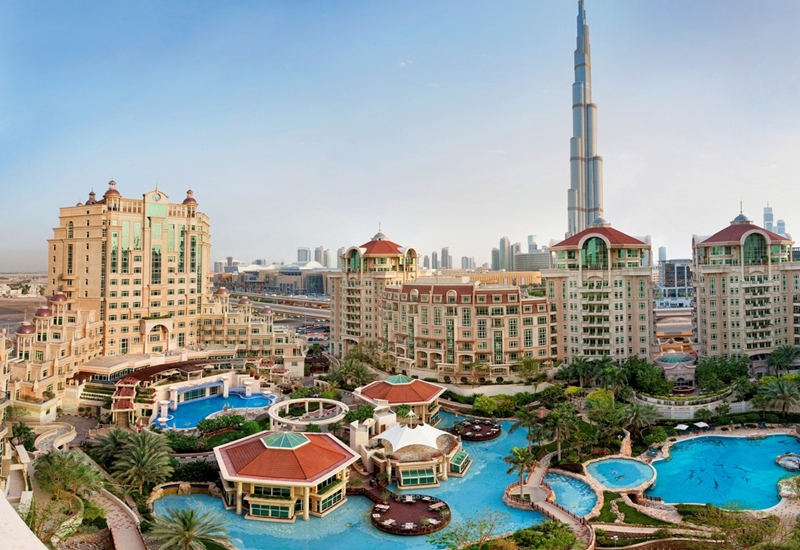Home-grown operator Rotana as well as Banyan Tree are two hotel brands that have announced de-flaggings in the latter half of 2016. In November, Rotana and Dubai International Real Estate (DIRE) mutually agreed to the termination of the management agreement of Al Bustan Hotel and Al Murooj Hotel in Dubai, effective from January 1, 2017. Also in the news in October, the Ritz-Carlton Hotel Company signed a management agreement with RAK National Hotels (RAKNH), and re-flagged two properties previously managed by Banyan Tree: The Ritz-Carlton Ras Al Khaimah, Al Hamra Beach and The Ritz-Carlton Ras Al Khaimah, Al Wadi Desert. Both properties following the renovations are scheduled to be re-launched in 2017 under The Ritz-Carlton stewardship.
In an interview with Hotelier Middle East during the opening of the Marriott Downtown Abu Dhabi, Marriott International president Middle East & Africa Alex Kyriakidis said: “Our strategy always has been to make sure that we respond to owners who come to us and say we would like to develop hotels, and this is how our interaction with Ras Al Khaimah started.
“Then of course came the opportunity where they felt it was appropriate to change the flag on two of their hotels, and they came to talk to us. We kicked it around and proposed Ritz-Carlton and Ritz-Carlton Reserve.”
Some of the questions that often arise after a de-flagging are: why do owners look at contracts again? What are the incentives to hire an established operator versus managing it themselves?
Preferred Hotels & Resorts allows independent hotel owners and management companies to utilise joint global sales, marketing, distribution, revenue management and loyalty services, reducing individual costs and strengthening efficacy. Its CEO Lindsey Ueberroth told sister title Arabian Business: “We have seen hotel owners ‘deflag’. We’ve seen about 40 hotels that have taken a chain down and gone independent [using Preferred Hotels’ services] and had great success and now [we] really see this as an exciting, viable option.”
In the case of Al Bustan and Al Murooj in Dubai, the owners decided to appoint a relatively new entity in the UAE hospitality industry, Roda Hotels & Resorts, to take over the management of the two hotels. The Rotana statement did not provide details on why both parties agreed to terminate their relationship.
So why do owners look to de-flag? According to Roda Hotel Group CEO Imad Elias, owners look to deflag hotels because they do not get a proper return on investment for the property. “Hotel operators should care about three stakeholders – guests, staff and the owner. The secret to managing a hotel properly is to pay attention to this. When operators do not keep their positioning in line with the stakeholders then the owners look to deflag,” Elias told Hotelier.
He said that if the profit margins keep decreasing year-on-year, then it’s a sign that sooner than later the owner will look towards a de-flagging.
According to a survey conducted on HotelierMiddleEast.com, 37.5% felt that owners look to de-flag as they want to maximise their profit, while 25% put it down to souring relations between owners and operators over KPIs. 18.8% felt that operators didn’t achieve desired revenues.
“The new trend is that hotel owners sign an agreement with international or regional hotel operators for anywhere between 20 to 60 years. By the terms of the agreement, the conditions are one-sided where the owners are sometimes trapped by the brand and legally cannot terminate this agreement for the duration of the contract. The owner has no say in the hotel and the operator becomes like an owner of the property without paying for it,” Elias added.
He commented: “Unfortunately, once operators secure a management deal the owner’s wishes are not their priority. Many of these operators have created a new brand simply to attract new deals in Dubai. Operators have so many properties that they become like a supermarket.”
Apart from the de-flagging, Rotana has been making waves in the hospitality sector as it plans to open seven new hotels in Dubai, four hotels in the capital Abu Dhabi and one in Ras Al Khaimah by the end of 2020.

| Advertisement |









 Search our database of more than 2,700 industry companies
Search our database of more than 2,700 industry companies









